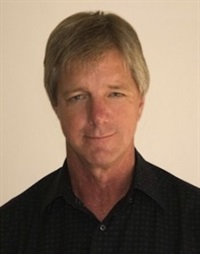BT18 Speech 12 - The Primacy of Creativity in Effective Psychotherapy - Stephen Gilligan, PhD
Credit Available - See Credits tab below.
Total Credits: 1.0 including 1.0 A.P.A.
- Average Rating:
- Not yet rated
- Topic Areas:
- Speeches | Psychotherapy | Art and Creativity | Brief Therapy | Resources
- Categories:
- Brief Therapy Conference | Brief Therapy Conference 2018 | Online Continuing Education
- Faculty:
- Stephen Gilligan, PhD
- Duration:
- 1:01:12
- Format:
- Audio Only
- Original Program Date:
- Dec 09, 2018
- License:
- Never Expires.
Description
Description:
Therapy is successful when clients are able to experience significantly changed realities. While the identification and transformation of symptoms is important in this regard, the activation of the client's creative capacity to make positive changes is even more important. This paper will explore how the 6-step model of Generative Psychotherapy provides a disciplined yet flexible process for helping clients claim and use their agency for creative change.
Educational Objectives:
- Identify the six steps for creative psychotherapy.
- List 3 clinical examples of using this approve.
- Describe how to transform obstacles into resources.
*Sessions may be edited for content and to preserve confidentiality*
Credits
1.0 credits available.
The Milton H. Erickson Foundation, Inc. is approved by the American Psychological Association to sponsor continuing education for psychologists. The Milton H. Erickson Foundation, Inc. maintains responsibility for this program and its content.
THE MILTON H. ERICKSON FOUNDATION Policy on Disclosure
The Milton H. Erickson Foundation is proud of the conferences and other
educational opportunities it sponsors, taking care that the conduct of
these activities conforms to the standards and principles of behavioral
and medical sciences, thus ensuring balance, independence, objectivity
and scientific rigor in all individually sponsored or jointly sponsored educational
activities.
All faculty members participating in a sponsored activity, and those who
review and therefore are in control of content, are requested to disclose
any relevant financial relationship prior to the CME activity, including but
not limited to specific commercial interests, financial remuneration received
by faculty member or spouse, and what role or activity was performed
for this remuneration. If a conflict of interest exists as a result of
a financial relationship it will be resolved prior to the activity. A faculty
member will not be allowed to present if the conflict is not or cannot be
resolved.
Faculty

Stephen Gilligan, PhD Related Seminars and Products
Stephen Gilligan Ph.D., is a Psychologist in Encinitas, CA. He was one of the original NLP students at UC Santa Cruz; Milton Erickson and Gregory Bateson were his mentors. After receiving his psychology doctorate from Stanford University, he became one of the premier teachers and practitioners of Ericksonian hypnotherapy. This work unfolded into his original approaches of Self-Relations and Generative Self, and then further (in collaboration with Robert Dilts) into Generative Coaching. These different traditions have all been updated and integrated into the present Generative Change Work, which includes the applications of Generative Coaching, Generative Psychotherapy, Generative Trance, Hero’s Journey, and Systemic Change work.


